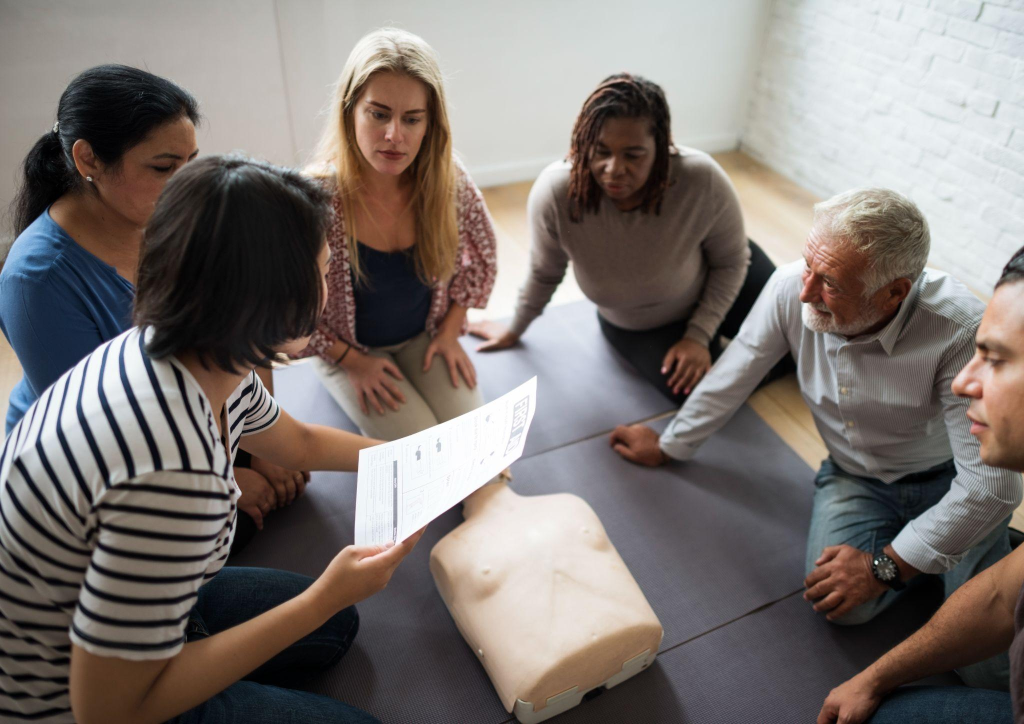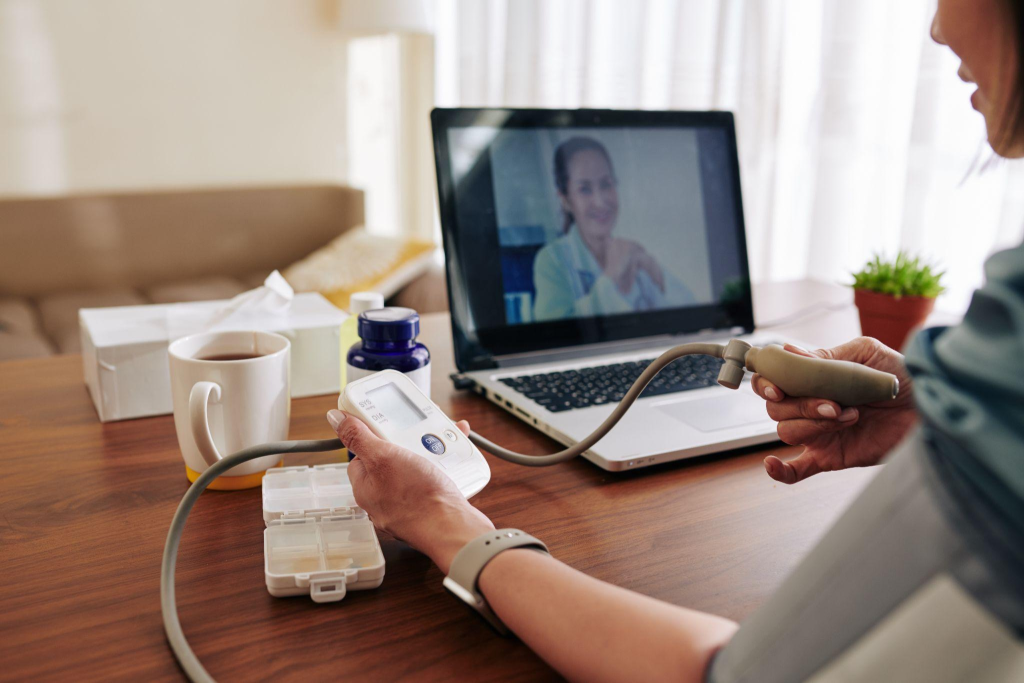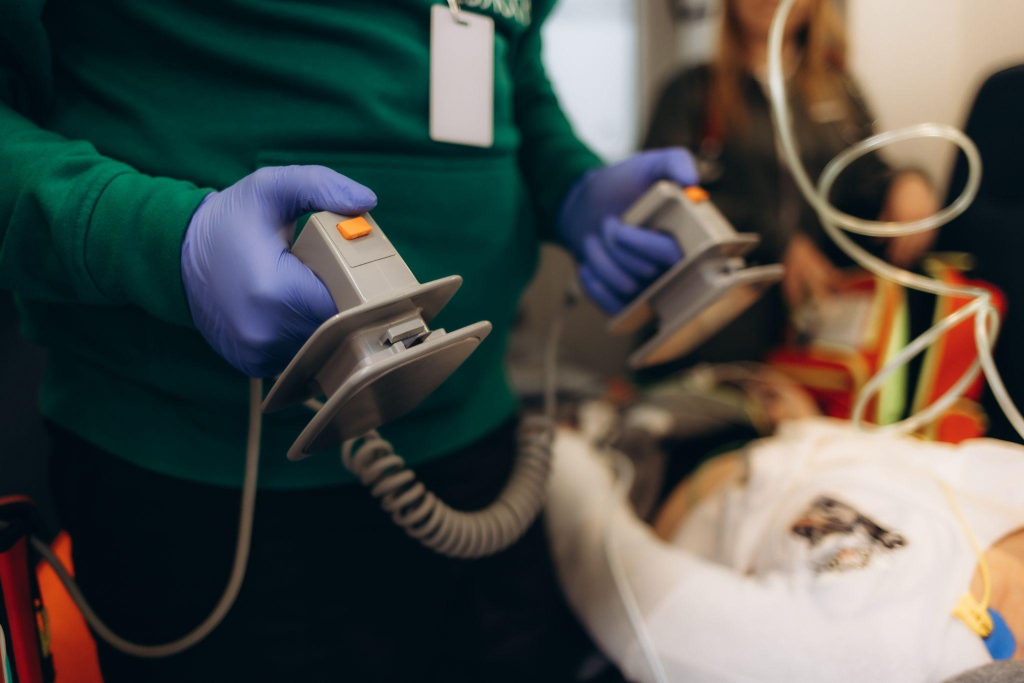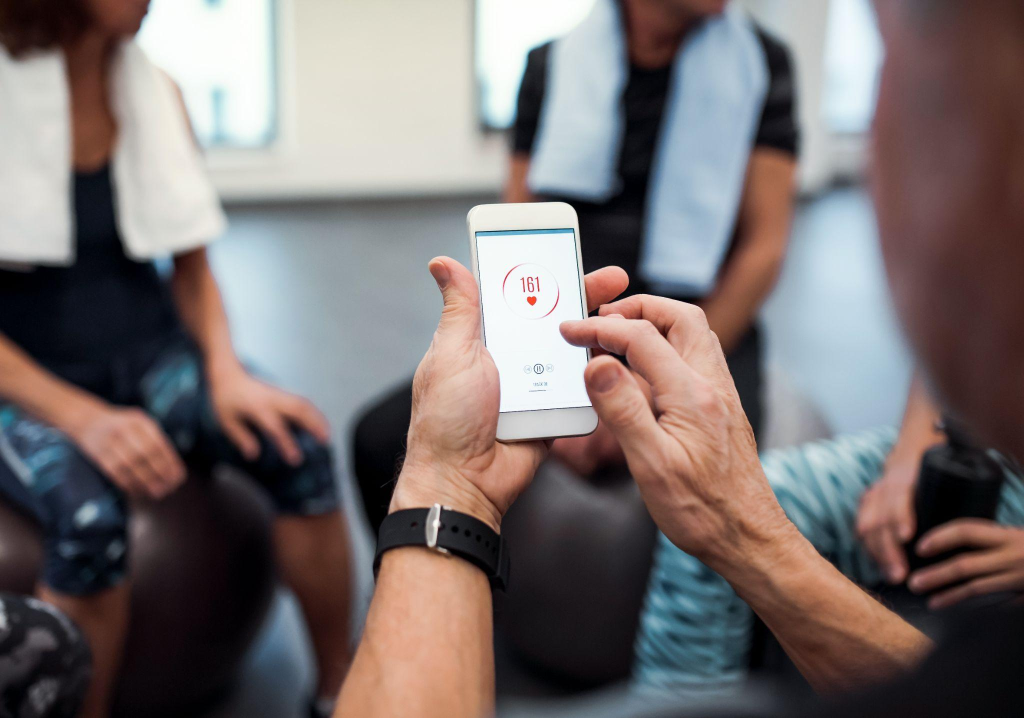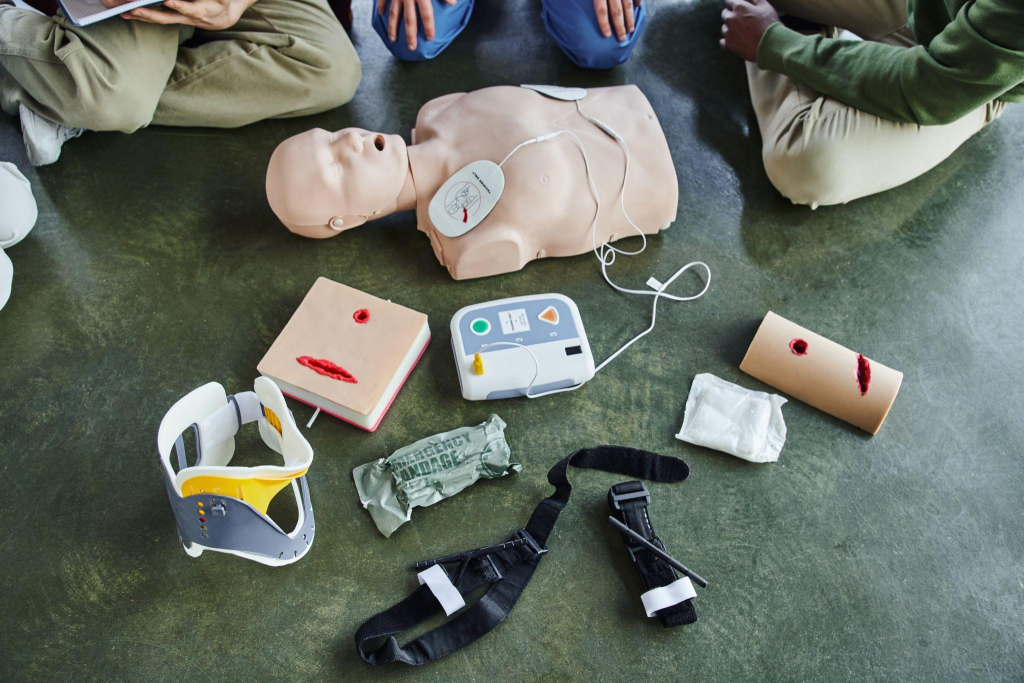Cultural competence has become an essential component of healthcare delivery in today’s diverse society, as highlighted by professional insights into cultural diversity. As the United States continues to grow more multicultural, healthcare professionals must adapt their practices to meet the unique needs of patients from various backgrounds.
Integrating cultural competence into Advanced Cardiovascular Life Support (ACLS) training is particularly crucial, as emergency situations often require quick decision-making and effective communication. By understanding and respecting the cultural differences among patients, healthcare providers can deliver more personalized and effective care during critical moments.
Enhancing cultural competence in ACLS not only improves patient outcomes but also promotes health equity and reduces disparities in emergency care. This article explores the importance of cultural competence in ACLS and provides strategies for healthcare professionals to address the needs of diverse patient populations.
What is Cultural Competence in ACLS?

Cultural competence in ACLS involves the ability to understand, appreciate, and effectively interact with patients from diverse cultural backgrounds during life-threatening cardiac emergencies. It encompasses the knowledge, skills, and attitudes necessary to deliver culturally sensitive care that respects each patient’s unique beliefs, values, and practices.
Integrating cultural competence into ACLS training ensures that healthcare professionals are prepared to navigate the complexities of providing emergency care to patients with diverse language preferences, religious beliefs, and cultural norms. By recognizing and addressing these differences, providers can establish trust, improve communication, and make more informed decisions that align with the patient’s cultural context.
Cultural competence in ACLS extends beyond mere awareness of cultural differences; it requires a commitment to ongoing self-reflection, learning, and adaptation. Healthcare professionals must be willing to examine their own biases, develop cross-cultural communication skills, and collaborate with patients and their families to deliver care that is both medically sound and culturally appropriate.
Incorporating cultural competence into ACLS certification courses, such as those offered by Affordable ACLS, is essential for preparing healthcare providers to meet the needs of diverse patient populations. By emphasizing the importance of cultural sensitivity alongside technical skills, these courses equip professionals with the tools necessary to deliver high-quality, patient-centered care during critical moments.
How to Enhance Cultural Competence in ACLS Training

To advance cultural competence in ACLS training effectively, a comprehensive approach integrating both educational and experiential methods is essential. Emphasizing the value of cultural diversity within training initiatives is a critical starting point, as it aligns with the importance of cultural diversity in education. This involves engaging participants with a range of cultural perspectives, thereby acknowledging how these differences shape health-related beliefs and behaviors. This engagement supports the creation of a learning environment that is inclusive and reflective of cultural dynamics.
Cultural competency workshops serve as a crucial component in this endeavor. These workshops offer interactive opportunities for participants to examine personal biases and refine communication strategies. Through the use of diverse patient scenarios in case studies, participants can deepen their understanding of delivering culturally considerate emergency care. This experiential learning aids in recognizing the subtleties of cultural interactions, thereby enhancing the capability to provide tailored care during emergencies.
The implementation of language and interpretation services is vital in bridging communication gaps during ACLS training simulations. Access to professional interpreters simulates real-world scenarios where linguistic differences could affect patient care. Training healthcare professionals in the proficient use of language services ensures they grasp the cultural nuances inherent in communication, thereby facilitating the provision of precise and respectful care. This preparation is key to effectively serving a linguistically varied patient demographic.
Embedding cultural competence in certification courses establishes these practices as foundational to professional growth. By incorporating dedicated cultural competence modules, healthcare providers are equipped to address the diverse needs of the populations they serve. Promoting continuous education and self-reflection on cultural competence ensures that practitioners are attuned to evolving cultural landscapes, reinforcing their dedication to delivering just and inclusive care.
Encouraging cultural humility complements these training efforts. Practitioners should recognize the boundaries of their cultural understanding and remain receptive to insights from patients. Cultivating an attitude of respect and inquisitiveness towards all patients creates a culture where cultural differences are valued and comprehended, ultimately enhancing patient care experiences and outcomes.
1. Embrace Cultural Diversity
Incorporating cultural diversity into ACLS training requires an active engagement with a wide array of cultural perspectives. This involves facilitating discussions that explore the unique cultural beliefs and healthcare practices influencing patient care. Such conversations provide a platform for participants to develop a comprehensive understanding of how cultural factors impact clinical interactions, highlighting the benefits of fostering cultural diversity.
To effectively engage with cultural diversity, it is crucial to utilize resources and materials that embody a spectrum of cultural experiences. This can involve integrating case studies and scenarios that reflect diverse cultural backgrounds, prompting participants to consider the implications of culture in medical decision-making. By exposing healthcare professionals to multiple cultural narratives, training programs can enhance their capacity for empathy and adaptability, essential for delivering patient-centered care.
Moreover, creating an environment that welcomes the sharing of personal cultural experiences enriches the learning process. This collaborative approach not only broadens cultural awareness but also equips healthcare providers with the insights needed to tailor their care to the cultural needs of their patients, strengthening communication and rapport.
2. Implement Cultural Competency Workshops
Facilitating workshops focused on cultural competence is essential for enhancing healthcare professionals’ skills in managing diverse patient interactions. These sessions provide a conducive environment for participants to delve into their biases and foster a deeper understanding of cultural nuances. Through targeted activities, healthcare providers can gain a clearer perspective on how their cultural perceptions impact patient care dynamics.
In these workshops, a variety of experiential learning techniques can be employed. Engaging participants in exercises that simulate clinical encounters with culturally diverse patients promotes critical thinking and adaptability. This hands-on approach prepares healthcare professionals to address real-world cultural challenges with confidence and sensitivity.
Utilizing comprehensive case studies that depict a variety of cultural contexts allows participants to explore complex patient scenarios. By dissecting these cases, healthcare providers can develop nuanced communication strategies that respect cultural differences. This analytical process equips them with the practical tools necessary to deliver patient-centered care that acknowledges and values cultural diversity.
3. Use Language and Interpretation Services
Integrating comprehensive language and interpretation services into ACLS training is vital for addressing communication challenges that can arise in diverse medical environments. By incorporating professional interpreters in training simulations, healthcare professionals gain firsthand experience in handling scenarios where language differences may impact patient interactions. This exposure is essential for preparing them to manage linguistic diversity effectively, ensuring that all patients receive clear and empathetic communication during emergencies.
Training should extend beyond basic interpreter protocols to encompass a deep understanding of cultural context in communication. This involves recognizing the impact of cultural backgrounds on communication styles and preferences. By fostering this awareness, healthcare providers can enhance their interactions with patients, leading to improved trust and rapport—key elements in effective patient care.
In addition, leveraging technology such as remote interpretation services can be an invaluable asset in situations where in-person interpreters are unavailable. These technological solutions provide immediate access to language support, ensuring seamless communication continuity. Educating healthcare professionals on the strategic use of such tools empowers them to navigate a variety of language-related challenges with confidence and efficiency.
4. Incorporate Cultural Competence into Certification Courses
Integrating cultural competence into ACLS certification courses involves a deliberate effort to broaden the educational framework to include cultural awareness alongside technical skills. This integration ensures that healthcare providers are not only prepared to perform life-saving procedures but also equipped to understand and respect the cultural contexts of their patients. By incorporating elements that address cultural perspectives, courses can create a learning environment that mirrors the diverse settings in which medical professionals operate.
These educational modules should delve into various aspects of culture, such as health beliefs, communication methods, and addressing disparities in care, reflecting UNESCO’s perspective on cultural diversity. Through active engagement with case studies and interactive discussions, participants can gain a deeper appreciation for the impact of cultural factors on patient care. This method encourages adaptability and enhances critical thinking, allowing providers to effectively manage the cultural intricacies present in emergency situations.
Continuous professional development and introspection are essential for sustaining cultural competence. By fostering a culture of ongoing learning, healthcare organizations can keep their workforce updated on the latest cultural evolutions and practices. Encouraging reflective practices through peer collaboration and feedback sessions can further deepen practitioners’ cultural insights, enabling them to tailor their care approaches to diverse patient needs. This dedication to continuous improvement not only elevates individual competencies but also enhances the overall standard of care delivery.
5. Promote Cultural Humility
Incorporating cultural humility into ACLS training requires creating an environment that encourages healthcare professionals to engage with the diverse cultural narratives of their patients. This approach emphasizes a commitment to lifelong learning and self-reflection, driving practitioners to continuously evaluate their biases and embrace the unique experiences of each patient. By prioritizing humility, healthcare providers can enhance their ability to offer care that respects and values cultural differences, fostering understanding culture and diversity in communities.
Cultural humility requires viewing each patient as an individual with distinct cultural experiences. This mindset fosters more profound and empathetic interactions, allowing healthcare providers to understand better and support their patients’ health beliefs and practices. By cultivating an attitude of curiosity and respect, practitioners can build rapport and trust, essential components of effective patient care.
In practical terms, cultural humility involves several key actions: actively listening to patients’ perspectives, acknowledging the influence of power dynamics in healthcare settings, and remaining flexible in care delivery based on patient input. Through these strategies, healthcare professionals can refine their cultural awareness and provide care that is both compassionate and responsive to the diverse needs of their patients.
By embracing cultural competence and humility, healthcare professionals can transform their ACLS practice to meet the diverse needs of their patients. Through ongoing education, self-reflection, and a commitment to understanding the unique cultural experiences of each individual, we can create a more inclusive and equitable healthcare system. If you’re ready to enhance your skills and provide the highest quality care to diverse patient populations, purchase your certification or recertification course today with us.







